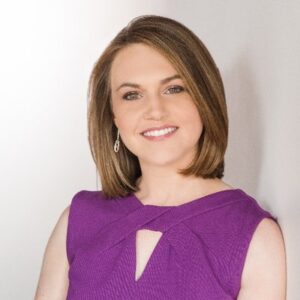This is the second post in a three-part series about the 5280 Fellowship, a new program for emerging leaders created by Denver Institute for Faith & Work.
Spend any time in Denver’s urban core and one thing becomes apparent: Denver is a young town. Whether you’re shopping for snowshoes at REI, sipping coffee on South Broadway, or attending a concert at Red Rocks, you’ll encounter the 20- and 30-somethings who now call the city home.
Denver has become a top destination for educated millennials, who are expected to become the largest segment of the metro area’s labor force in the next 10 years. And while many come for the region’s thriving job market and outside opportunities, they arrive asking deeper questions about life:
What am I made to do?
What does it look like to be successful?
Does my work make a difference?
Amy Wofford, program manager at The Commons on Champa, observes many young professionals struggling with a lack of direction. “I think many people in my generation are confused [about how they should manage their careers],” she says. “If we’re not passionate about a job, we wonder if we should we should leave it or if we’re not enjoying our work, should we do something else? We all want purpose in our work… I think everyone’s searching for that in their jobs.”
Denver Institute for Faith & Work’s 5280 Fellowship addresses these very questions through an intensive nine-month experience designed to help fellows understand their work in light of the gospel. As fellows explore issues of work, calling, and culture they’ll gain insight to guide them in their roles as the city’s emerging leaders.
“I’m not just wanting to be developed as a leader to be more successful or to make more money,” Amy explains. “That would be great, but ultimately I need something that will help advance me in my faith as a Christian leader. I haven’t found anything else like that here. There are so many voices and influences pulling you different directions. I feel constant pressure, so for the Fellows program to have a sounding board — a community of people who have the same questions about vocation, faith and work, and how to be a leader in our community is what really interests me.”
To develop emerging leaders like Amy, the Fellowship focuses on three key areas:
Theology & Formation. Fellows will meet weekly in church-based cohorts to discuss foundational texts in theology, culture, and work. Discussions provide a deeper understanding of biblical worldview and mission, the role of Christians in culture, personal calling, and theology of work.
Community & Culture. Fellows will learn about key issues affecting the city and hear from senior leaders representing a wide variety of fields. In addition to building relational networks, these conversations shed light on a leader’s professional journey and cultural engagement.
Leadership & Service. Fellows will be guided through an executive coaching process designed to develop their skills as leaders and prepare a final project addressing specific needs in their industry or community.

